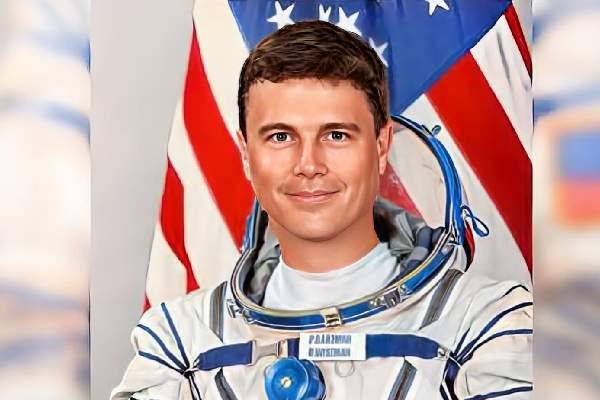Karl Landsteiner Biography: Discoverer of Blood Groups and The Polio Virus
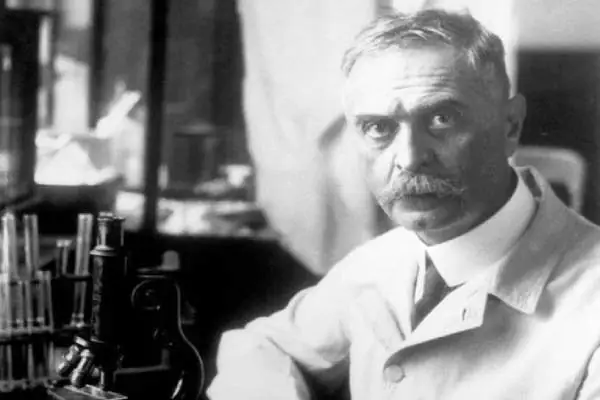
Karl Landsteiner Biography. Image Source: Twitter
- Full Name Karl Landsteiner
- Age 75 yrs
- Birth Date June 14, 1868
- Country America
- Relationship Status Married
- Spouse Leopoldine Helene Wlasto
- Nationality American
- Profession Biologist, Physician, and Immunologist
- Children Ernst Karl Landsteiner
- Awards and honors Nobel Prize in Physiology or Medicine (1930)
- Education M.D. University of Vienna
- Death Date June 26, 1943
Described as “the father of Transfusion Medicine,” Karl Landsteiner was an Austrian-born American biologist, physician, and immunologist. He is widely known for his significant advances and discoveries of the blood group system and poliovirus.
Landsteiner made a number of significant contributions to science in addition to his research on human blood types.
This article about Karl Landsteiner biography will deep dive into the genius mind behind the groundbreaking discovery of the modern blood group system.
Born Into A Jewish Family: Influenced By His Father’s Profession
Karl Landsteiner was born on June 14, 1868, in Baden bei Wien, Austria, to Jewish parents Leopold Landsteiner (father) and Fanny Landsteiner (mother). Leopold was a renowned journalist and newspaper publisher who died when Karl was six.
Meanwhile, Fanny raised her son alone, who showed a keen interest in science and medicine, likely influenced by his father’s profession as he was a doctor-in-law as well. Further, Karl had a strong emotional bond with his mother and was devoted to helping her until she passed away in 1908.
Talking about Karl’s education, he completed schooling at Vienna Secondary School. He studied medicine at the University of Vienna, graduating with an M.D. (Doctor of Medicine) degree in 1891. At just 23 years old, Landsteiner published an essay on the impact of diets on the composition of blood. Moreover, his early exposure to meeting leading scientists and educators at the University of Vienna ignited his interest in immunology and pathology.
Discovery of Blood Groups: Father of Transfusion Medicine
Do you know blood transfusion saves lives every day? The hospital uses them to help people who are having surgery, getting cancer treatment, or suffering from other vital diseases. But you might not know Karl Landsteiner is the man who is called “the father of transfusion medicine.”
From 1891 until 1893, Lansteiner studied chemistry under the guidance of a few chemists, including Arthur Hanztch (Zurich), Emil Fischer (Wurzburg), and Evigen Bamberger (Munich).
After returning to Vienna in 1896, Landsteiner resumed his medical studies at a general hospital and worked as an assistant to Max von Gruber, the Austrian Scientist at the Hygenic Institute.
From 1897-1908, Landsteiner worked as an assistant at the pathological-anatomical institute of the University of Vienna. During that time, he published 75 papers dealing with issues such as bacteriology and virology, with the completion of over 3,600 autopsies.
Landsteiner’s most notable findings came in 1901 when he made the groundbreaking discovery of blood groups according to the presence or absence of particular antigens on the surface of red blood cells.
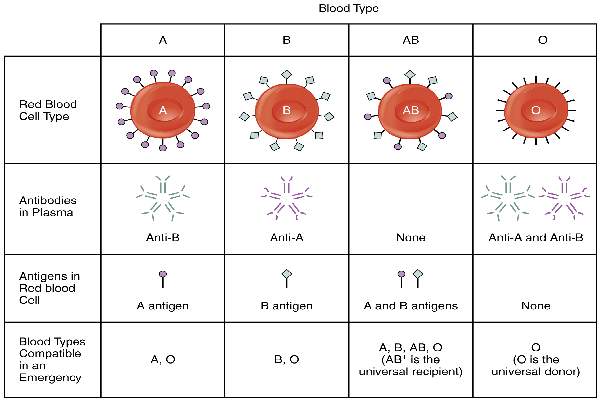
Karl Landsteiner Biography. Image Source: Wikimedia Commons
Landsteiner’s ideas were not given enough consideration until 1909 when he divided human blood into the now-famous A, B, AB, and O groups and showed that transfusions between individuals in groups A or B do not result in the destruction of new blood cells; instead, this catastrophe only occurs when a person is transfused with the blood of a person belonging to a different group.
Landsteiner’s work on blood groups was not only scientifically groundbreaking but also had significant practical implications. It enabled the safe and successful transfusion of blood, as well as the understanding of inherited blood-related disorders. His research marked a pivotal moment in medical history, leading to improved patient outcomes and the prevention of adverse reactions during blood transfusions.
ALSO READ: The first U.S African American woman M.D. Rebecca Lee Crumpler Biography.
Polio Virus: Contributions to Polio Research
While Landsteiner is primarily known for his association with his work on blood groups, he also made substantial contributions to the study of polio. Collaborating with Erwin Popper, an Austrian physician, Landsteiner was instrumental in isolating and identifying the polio virus.
From 1908 to 1920, Landsteiner worked at the Wilhelminenspital in Vienna. In 1911, he joined pathological anatomy as an associate professor. It was during that time when Landsteiner and Popper discovered the polio virus and were able to isolate it. This discovery opened the door for additional investigation and, ultimately, the development of immunizations.
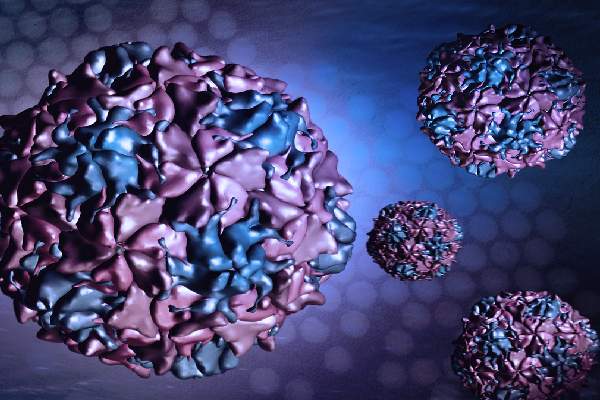
Karl Landsteiner Biography. Image SourceL Flickr
In order to fully comprehend the poliovirus and eventually contribute to the development of vaccinations, Landsteiner’s polio study was essential. These vaccines were essential in eradicating the disease in many regions of the world. Later, Landsteiner carried on his study and made advancements in immunology.
Karl Landsteiner’s discoveries not only had a significant impact on medical knowledge, but they also helped to comprehend viral diseases like polio and enabled safe blood transfusions, which saved many lives. His work established the groundwork for contemporary medical procedures as well as immunological developments.
Similarly, you might want to read about Dr. Michael Ellis DeBakey’s Biography, a pioneer in the development of an artificial heart.
Karl Landsteiner’s Impact: Einstein of Biomedical Science?
By 1919, Vienna had become a place of no future for Dr. Landsteiner because of the economic and social turmoil brought on by the fall of the Austro-Hungarian monarchy and World War I. Additionally, his Jewish heritage put him at risk because of the political unrest that followed the establishment of the Nazi government in Austria.
From In 1916-1943, Landteiner was married to Leopoldine Helene Wlasto until her death. She was a Greek Orthodox woman who converted to her husband’s Catholic faith. Together, they had a son named Ernst Karl Landsteiner.
In 1923, Dr. Landsteiner took a position at the Rockefeller Institute for Medical Research in New York. Throughout his career, Landsteiner was awarded a few prestigious awards, including the 1926 Aronson Prize and the 1930 Nobel Prize in Physiology or Medicine.
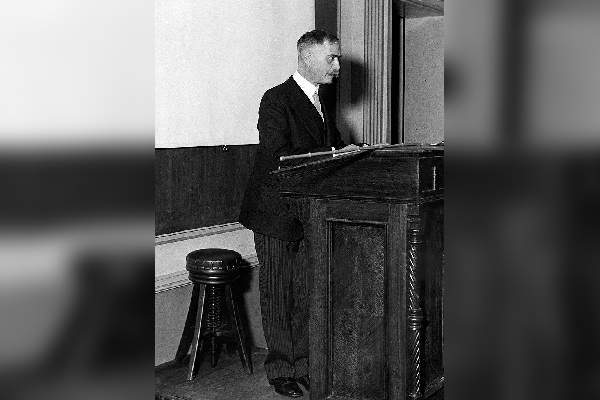
Karl Landsteiner Biography. Image Source: PicRyl
Till the end of his life, Landsteiner dedicated his time to work on his investigations into the chemistry of blood antigens, antibodies, and other immunological components. Sadly, he passed away on June 26, 1943, leaving behind a lasting legacy that, over time, has affected and inspired innumerable scientists and medical professionals.
Described as the father of transfusion medicine, Dr. Landsteiner was posthumously awarded the Lasker Award in 1946.
Karl Landstiener, who is also referred to as the “Einstein of Biomedical Science,” discovered blood groups and laid down the broad rules of safe blood transfusion. This discovery made it possible to save the lives of thousands of war and accident victims from blood loss and patients requiring blood.
Landsteiner was awarded the Nobel Prize at about the same time as Einstein, as both made equal importance in their respective fields of research. Yet, he is largely forgotten, and Karl Landsteiner biography hopes to change that. Nevertheless, the father of blood transfusion revolutionized medical practices, made countless lives possible to save, and paved the way for further advancements in immunology and medical research.
Starr, M. (2016, June 14). Karl Landsteiner, discoverer of blood groups, honoured in Google Doodle. CNET.
Karl Landsteiner (1868–1943) – a 20th century scientist as the “Einstein of biomedical science” on JSTOR. (n.d.-b).
The Nobel Prize in Physiology or Medicine 1930. (n.d.). NobelPrize.org.
The Editors of Encyclopaedia Britannica. (2023, June 22). Karl Landsteiner | Nobel Prize-Winning immunologist & pathologist. Encyclopedia Britannica.
Did you notice an error ?
Please help us make corrections by submitting a suggestion. Your help is greatly appreciated!






